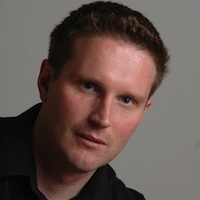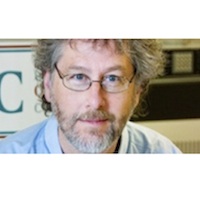Plenary Speakers

Professor Martin Wainwright
University of California at Berkeley
From Information Theory to Statistics: A few modern vignettes
Abstract: While information theory has shared close connections with statistics since its inception, the modern era of "big data" has raised a number of new challenges at this interface. In this talk, we provide an overview of some statistical problems in which information theory has an important role to play. Examples include the problem of inferring the structure of large-scale networks from data, the minimization of convex functions based on noisy gradients, and trade-offs between individual privacy and statistical utility. In each of these settings, information-theoretic methods can be brought to bear in interesting and powerful ways.
Bio: Martin Wainwright is currently a professor at University of California at Berkeley, with a joint appointment between the Department of Statistics and the Department of Electrical Engineering and Computer Sciences (EECS). He received a Bachelor's degree in Mathematics from University of Waterloo, Canada, and Ph.D. degree in EECS from Massachusetts Institute of Technology (MIT). His research interests include information theory and coding, high-dimensional statistics, and statistical machine learning. He has been awarded the George M. Sprowls Prize for his dissertation research (MIT), an Alfred P. Sloan Foundation Fellowship, a Medallion Lectureship (2013) from the Institute of Mathematical Statistics, and is the co-recipient of Best Paper Awards from the IEEE Signal Processing Society (2008), IEEE Communications Society (2010), the Joint Paper Prize (2012) from IEEE Information Theory and Communication Societies.

Professor David Cory
University of Waterloo and Perimeter Institute for Theoretical Physics
Realizing Quantum Information Processors
Abstract: Quantum mechanics is the ultimate law of nature and when we can build a device that behaves uniquely quantum mechanically then we may achieve the highest efficiencies allowed by nature. One of the most compelling applications of quantum devices is for information processing. I will describe laboratory scale, small quantum processors: including a bit about how they work and what they are useful for. I will discuss some near term quantum devices, sensors and actuators that are emerging from laboratories. Finally I will include a brief perspective of where we are on the path to building a general-purpose quantum computer.
Bio: David Cory is a leading global innovator in experimental quantum physics and quantum engineering, whose work is already being used in a range of applications, from the medical field to the oil industry.
Before accepting his Canada Excellence Research Chair at the University of Waterloo, Cory was professor of nuclear engineering at the Massachusetts Institute of Technology, where he made significant breakthroughs in quantum information processing and other fields by advancing nuclear magnetic resonance methods. He is also an associate researcher at Canada's Perimeter Institute for Theoretical Physics, and is chair of the advisory committee for the Canadian Institute for Advanced Research.
Cory holds a PhD in physical chemistry from Case Western Reserve University, Cleveland, Ohio. He also held two postdoctoral fellowships, through which he developed instrumentation and methods for magnetic resonance and imaging of solids. He held the first at the University of Nijmegen, The Netherlands, and the second as a National Research Council fellow at the Naval Research Laboratory in Washington, D.C.

